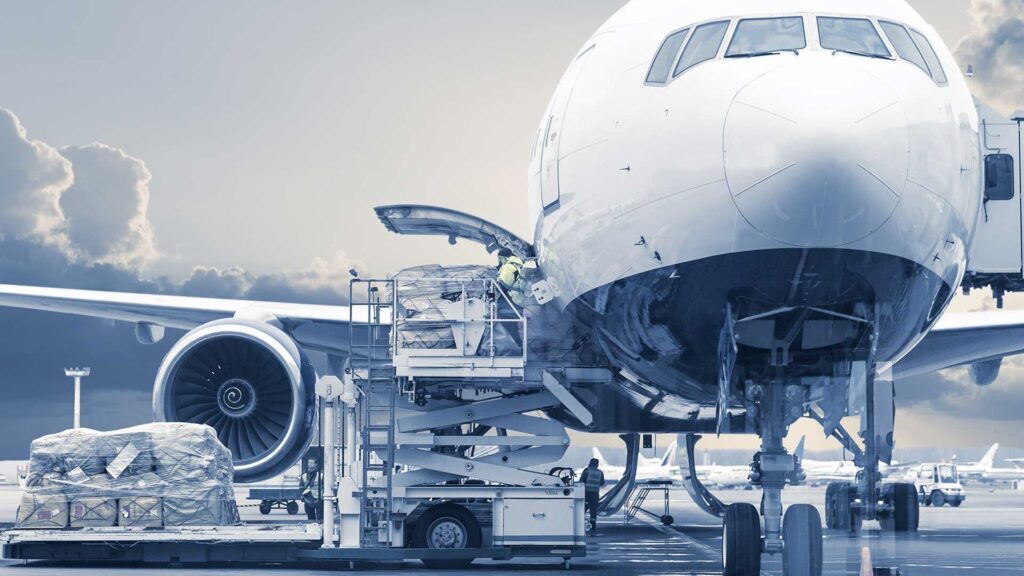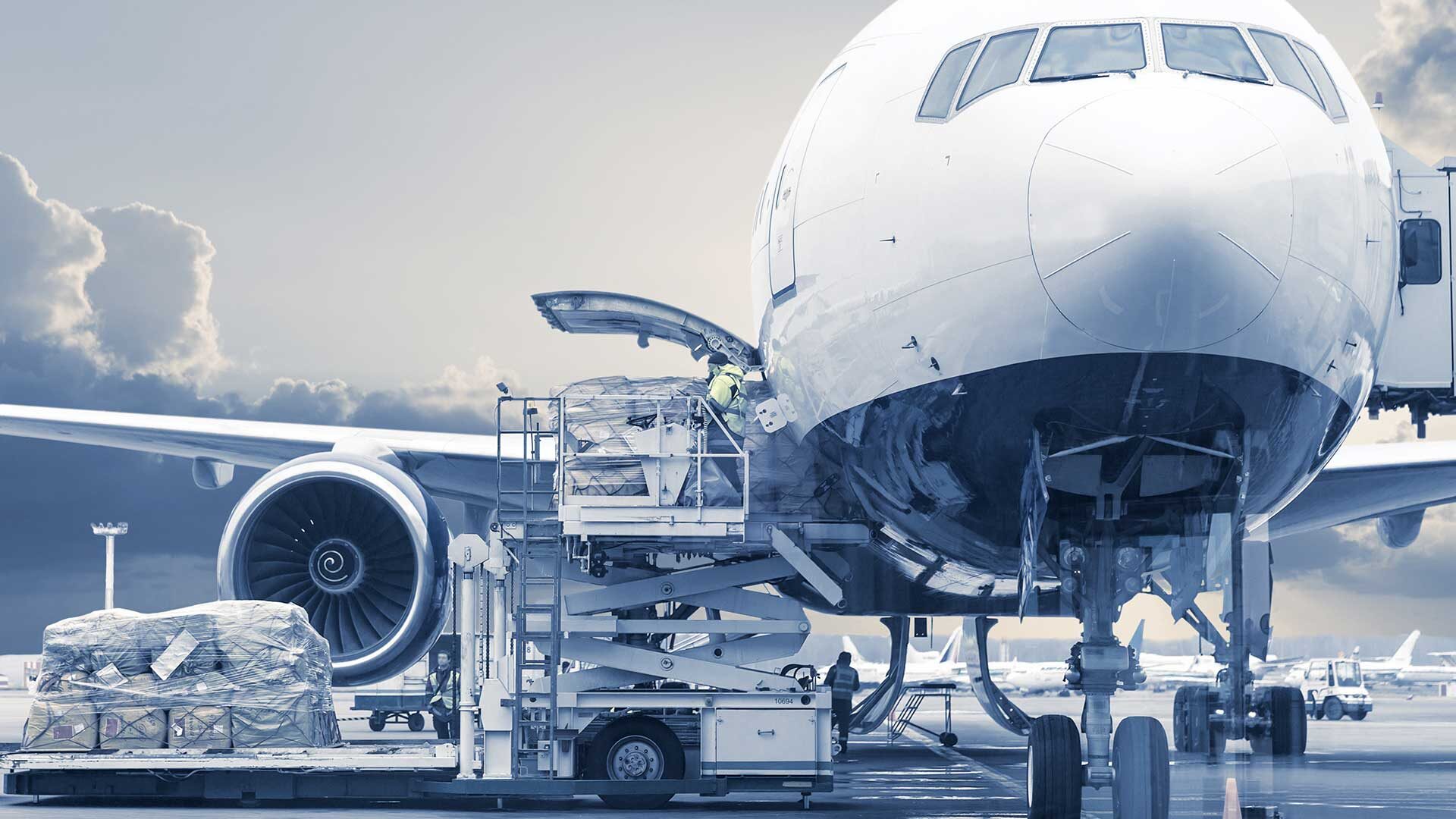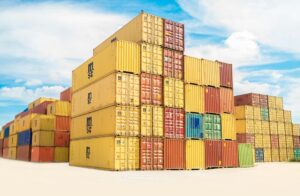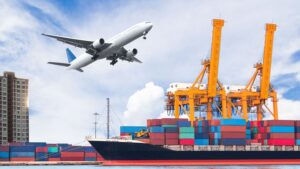In today’s globalized marketplace, businesses across Kenya rely on efficient and reliable air shipping solutions to import goods from China. Air freight offers significant advantages over traditional sea freight, particularly when time-sensitive deliveries or perishable items are involved. This comprehensive guide delves into the intricacies of air shipping from China to Kenya, empowering you to navigate the process with clarity and confidence.
Benefits of Air Shipping

- Swift Delivery: Air shipping boasts unparalleled speed compared to sea freight. Shipments typically reach their Kenyan destinations within 4-7 business days, ensuring a seamless flow of inventory and minimizing disruptions in your supply chain.
- Enhanced Product Freshness: For perishable goods like foodstuffs, medicine, or electronics with short shelf lives, air freight is the ideal choice. It guarantees faster delivery, mitigating the risk of spoilage or degradation during transport.
- Reduced Risk of Damage: Air cargo travels at high altitudes, experiencing less wear and tear compared to sea freight. This translates to a lower likelihood of damage due to factors like moisture, rough seas, or extended handling times.
- Improved Inventory Management: The swift turnaround time facilitated by air shipping allows for tighter inventory control. Businesses can maintain lower stock levels, minimizing storage costs and ensuring a constant flow of fresh products.
- Greater Predictability: Airfreight schedules are generally more reliable than those of sea freight, offering greater predictability for businesses. This enables you to plan deliveries more effectively and meet customer expectations with confidence.
- Simplified Customs Clearance: Air shipments often benefit from streamlined customs clearance procedures at Kenyan airports compared to seaports. This can expedite the release of your goods and reduce potential delays.
Air Shipping Process and Logistics

Understanding the air shipping process from China to Kenya is crucial for a smooth and successful experience. Here’s a breakdown of the key steps involved:
- Quotation and Booking: Contact a reputable air freight forwarder who specializes in China-Kenya routes. Provide them with details about your shipment, including weight, dimensions, commodity type, and desired delivery timeframe. They will provide a comprehensive quote outlining the costs and estimated transit time. Upon confirmation, your chosen forwarder will book the necessary air cargo space.
- Packing and Labeling: Ensure your goods are packed securely using high-quality materials appropriate for air travel. Adhere to all weight and size limitations set forth by the airline. Clearly label each package with the following information:
- Consignee (receiver) name and address in Kenya
- Shipper (sender) name and address in China
- Number of packages in the shipment
- Gross weight and dimensions of each package
- Detailed description of the contents
- Customs Documentation: Prepare all necessary customs documentation for both Chinese and Kenyan authorities. This typically includes a commercial invoice, packing list, bill of lading (issued by the air carrier), and any required import/export permits or certificates specific to the goods being shipped.
- Collection and Delivery: The air freight forwarder will arrange for the collection of your shipment from your designated origin point in China. The goods will then be transported to the airport, undergo customs clearance procedures, and be loaded onto the appropriate aircraft for their journey to Kenya. Upon arrival in Kenya, the shipment will be cleared by Kenyan customs and delivered to your designated destination.
Documents Required for Air Shipping
The specific documents required for air shipping from China to Kenya may vary depending on the nature of your goods and the value of the shipment. However, some essential documents are consistently necessary:
- Commercial Invoice: A detailed breakdown of the shipment’s value, including a description of the goods, quantities, unit prices, and total value.
- Packing List: A comprehensive list of the items in the shipment, specifying their descriptions, quantities, weights, and dimensions for each package.
- Bill of Lading (Air Waybill): A contract of carriage issued by the airline, serving as a document of title for the goods and outlining the transportation agreement between the shipper and the carrier.
- Certificate of Origin: A document certifying the country where the goods were manufactured or substantially transformed. This may be required by Kenyan customs authorities depending on the type of goods.
- Import/Export Permits: Certain commodities, such as hazardous materials, agricultural products, or wildlife products, may necessitate specific import or export permits from both Chinese and Kenyan authorities.
Pro Tip: It’s highly recommended to consult with your chosen air freight forwarder regarding the exact documentation requirements for your specific shipment. They possess the necessary expertise to ensure you have all the requisite paperwork in order to avoid delays or complications during customs clearance.
Customs Regulations and Clearance Procedures

Customs clearance is a crucial step in the air shipping process. Both Chinese and Kenyan customs authorities have regulations in place governing the import and export of goods. Here are some key pointers to ensure a smooth customs clearance process for your air shipment from China to Kenya:
- Accurate and Complete Documentation: Ensure all required documents are meticulously prepared, providing accurate and consistent information. Discrepancies between documentation and the actual shipment can lead to delays and penalties.
- Commodity Classification: Properly classify your goods under the Kenyan Customs Harmonized System (HS) code. This code determines the applicable duty rates and any import restrictions. Partner with your freight forwarder to ensure accurate classification.
- Duty and Tax Payment: Be prepared to pay any applicable import duties and taxes levied by Kenyan customs authorities. The duty rates are determined by the HS code of your goods.
- Pre-approval for Restricted Goods: For certain restricted goods, such as pharmaceuticals or electronics, you may need to obtain pre-approval from relevant Kenyan government agencies before shipping.
Pro Tip: Consider utilizing a customs bonded warehouse in Kenya if you anticipate large or frequent shipments. This allows for the storage of your goods under customs control until duty payments are settled or the goods are released.
Air Shipping Costs and Pricing Factors

Air shipping costs from China to Kenya can vary depending on several factors:
- Weight and Dimensions: Air freight charges are typically calculated based on the chargeable weight of your shipment, which considers both the gross weight (actual weight) and volumetric weight (weight based on dimensions). The higher of the two values will be used to determine the cost.
- Origin and Destination Airports: The specific airports in China and Kenya that your shipment travels through can influence the overall cost. Major international airports tend to have more competitive rates compared to smaller regional airports.
- Fuel Surcharges: Air cargo carriers often impose fuel surcharges to account for fluctuations in global fuel prices. These surcharges can fluctuate and should be factored into your budget.
- Security Fees: Additional security fees may be applied to your shipment, particularly for cargo deemed high-risk by the airline.
- Declared Value: The declared value of your goods impacts the cost of insurance, which is often a mandatory component of air freight. Higher declared values will result in higher insurance premiums.
- Urgency of Delivery: Expedited shipping options, such as same-day or next-day delivery, come at a premium cost compared to standard air freight services.
Pro Tip: To secure the most competitive rates, it’s advisable to obtain quotes from several reputable air freight forwarders specializing in the China-Kenya route. Negotiate terms based on your shipment volume and frequency.
Tips for Choosing an Air Shipping Provider

Selecting the right air freight forwarder is crucial for a successful and cost-effective air shipping experience. Here are some key considerations:
- Experience and Reputation: Choose a forwarder with a proven track record of handling air shipments between China and Kenya. Look for companies with positive customer reviews and a strong industry reputation.
- Service Offerings: Evaluate the range of services offered by the forwarder. Look for a company that provides comprehensive services encompassing quotation, booking, customs clearance, cargo insurance, and door-to-door delivery solutions.
- Competitive Rates: Compare pricing structures and quotes from various forwarders. Don’t solely focus on the cheapest option; prioritize value for your specific needs.
- Communication and Transparency: Ensure clear and consistent communication with your chosen forwarder. They should keep you updated on the progress of your shipment and address any concerns promptly.
- Technology and Tracking: Opt for a forwarder that utilizes advanced tracking technology to provide real-time visibility into the whereabouts of your shipment throughout its journey.
Pro Tip: Building a strong relationship with a reliable air freight forwarder can be highly beneficial. They can offer valuable insights, negotiate competitive rates on your behalf, and ensure a smooth and efficient air shipping experience.
Packaging and Labeling Requirements

Proper packaging and labeling are paramount for ensuring the safe and secure transport of your goods via air freight. Here are some essential guidelines:
- Use sturdy and high-quality packaging materials: Cardboard boxes, wooden crates, or secure pallets are suitable options depending on the nature and weight of your goods.
- Adequate cushioning and protection: Employ sufficient cushioning materials like bubble wrap, packing peanuts, or foam to safeguard your items from impact and movement during transport.
- Clear and compliant labels: Ensure all packages are clearly labeled with the consignee and shipper information, including complete addresses and contact details. Additionally, include the number of packages in the shipment, gross weight and dimensions of each package, and a detailed description of the contents.
- Marking for air travel: Clearly mark your shipment as “Air Freight” to ensure proper handling by airport personnel.
- Fragile or hazardous materials: If your shipment contains fragile or hazardous materials, adhere to all applicable regulations and labeling requirements for air transportation. Consult with your chosen air freight forwarder for specific guidance on handling these types of goods.
Pro Tip: Investing in high-quality packaging materials may seem like an upfront cost, but it can significantly reduce the risk of damage during air travel. Damaged goods can lead to delays, replacement costs, and customer dissatisfaction.
Tracking and Monitoring Your Air Shipment

Peace of mind comes with knowing the exact whereabouts of your shipment throughout its journey. Most reputable air freight forwarders offer real-time shipment tracking capabilities. These tracking systems typically provide detailed information, including:
- Current location of your shipment: Whether it’s at the origin airport awaiting departure, in transit on the aircraft, or at the destination airport undergoing customs clearance.
- Flight details: Information about the specific flight carrying your shipment, including flight numbers, departure and arrival times.
- Delivery status updates: Notifications on the progress of your shipment through customs clearance and updates on its estimated delivery timeframe.
Pro Tip: Utilize shipment tracking tools effectively. Proactive communication with your air freight forwarder can address any potential delays or issues that may arise during the transportation process.





